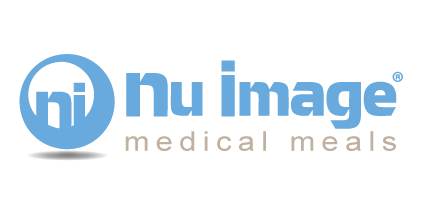Salt, Sodium and our Health
Aug 16, 2011
Table salt (which is a combination of sodium and chloride) has been an important part of the human diet for centuries. In fact, the ability to taste saltiness is one of our basic human characteristics. Salt can bring out the flavor of foods, help to preserve our food, and even helps to transport vital nutrients around our bodies. But despite all the good aspects of salt, we often hear how detrimental it is to our overall wellbeing. So what is the story with salt, sodium and our health?
Common table salt is really a combination of sodium (40%) and chloride (60%) and it's the sodium in salt that, if eaten too much of, can play havoc with our health. So while it's true that sodium is an important element and helps to provide balance and ensure our body is functioning properly, just like most things in life, too much of a good thing can become a bad thing.
How much do we need?
The USDA recommends limiting sodium to less than 2300 mg a day (1,500 mg if you're age 51 or older, have high blood pressure, diabetes or chronic kidney disease). One teaspoon of salt is equivalent to 2,300 milligrams of sodium. It's not a lot.
What happens if we get too much?
Too much sodium affects our health in a myriad of ways. There are those small, annoying things like water retention and slowing of weight loss (due to extra water weight), to some serious life-threatening health conditions. Some of the more insidious consequences of consuming too much sodium include:
High blood pressure and heart disease: Salt causes your body to retain water, which causes your blood volume to increase, which in turn causes high blood pressure. High blood pressure forces your heart to work twice as hard to move the blood around your body which strains the heart and can eventually lead to heart disease.
Nerve problems: The sodium in salt plays a prominent role in sending nerve impulses around your body, which affect how your nerves operate. So if you eat too much salt it can affect the flow of electrolytes throughout your body and cause a whole host of nerve related problems.
Osteoporosis: Eating too much salt can decrease the density of your bones making them fragile. We need calcium to build strong bones, but if you eat too much salt, a lot of your calcium intake is directed straight out of your body via urination.How to stay healthy
We're not advocating a completely sodium-free diet, but rather one in which salt is consumed in moderation.
Due to the fact that it's a great preservative, sodium can be found in a lot of processed foods, which makes sense. But what's disturbing is that you'll find sodium is lurking in a lot of unsuspecting places. Just start reading the labels and you'll be amazed where you'll find it.
Tips for managing sodium intake
- Step one, ditch the saltshaker. You don't need it. Try your food without any salt; chances are you'll be surprised at how good it tastes without sprinkling the white stuff. And if you don't have a saltshaker within arms reach you'll be more prone to accept the taste of a salt-free meal.
- Replace the seasonings in your spice rack with the no-salt variety. There are a ton of great alternatives out there. Experiment with different types and you'll eventually find one that will work for you.
- Look for products labeled as "sodium-free," "very-low sodium," "low sodium," "reduced sodium," "unsalted," "no salt added" or "without added salt." Just keep in mind that even the "unsalted" items may have some sodium in them. Just read the labels.
- Avoid processed foods. Processed and prepackaged food is loaded with salt. That's the reason they can stay on the shelf at the grocery store for so long, they are preserved via salt.
- Choose fresh foods, whole foods and natural foods. While some of these may contain trace amounts of salt, that's ok. Our bodies were meant to consume trace amounts just not the copious amounts we're currently getting.
Salt, or sodium chloride, by itself is not bad for our health. And in fact, our bodies need a certain amount of sodium to function properly. However, consumed in large quantities, salt and one of it's primary components, sodium, can be extremely dangerous to our health. Adopting a common sense approach of moderation will ensure you are getting the right amount of sodium and your overall health will benefit greatly.
Author: Sue Ridgeway









